Introduction
Understanding Giant Schnauzer Temperament is crucial for prospective dog owners
- Giant Schnauzers are known for their intelligence and quick learning abilities
- These dogs are protective and often serve as excellent guard dogs
- They have a loyal and affectionate nature, making them great family pets
- Giant Schnauzers require consistent training and socialization from an early age
- Their energetic and active disposition means they need plenty of exercise
1. Loyal and Protective Nature
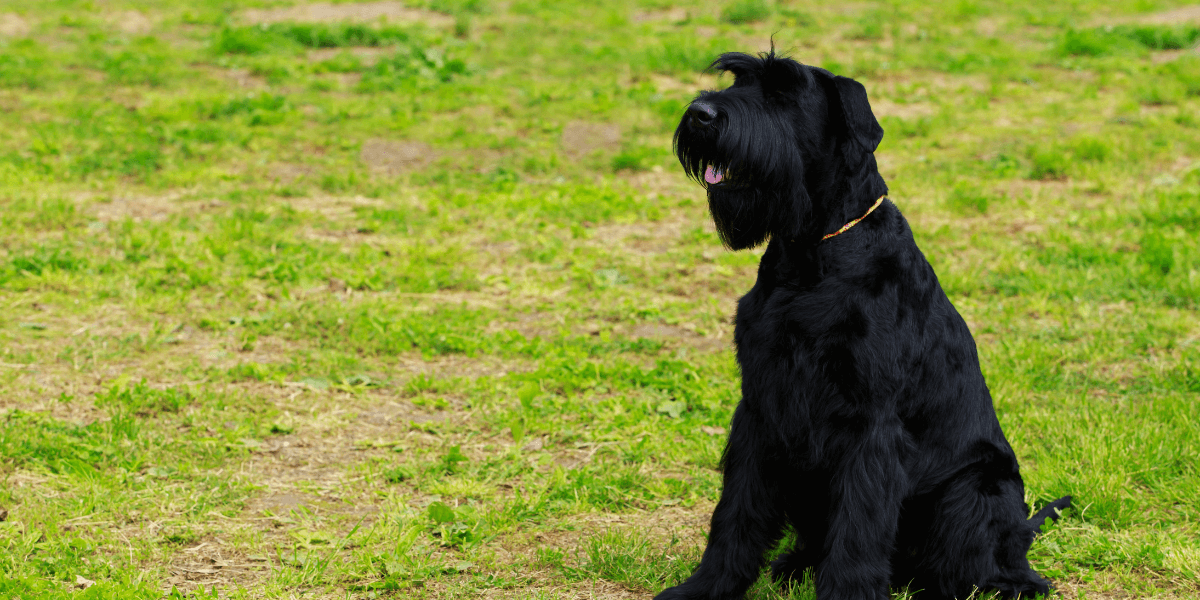
Giant Schnauzers are renowned for their loyalty and protective instincts.
Detailed Explanation:
- Loyalty: These dogs form strong bonds with their families and are often very loyal
- Protective Instincts: Giant Schnauzers are always alert, making them reliable guardians
Advice & Best Practices:
- Socialization: Introduce your Giant Schnauzer to various people, environments, and situations
- Training: Reinforce positive behaviors with consistent training and rewards
2. Intelligent and Trainable
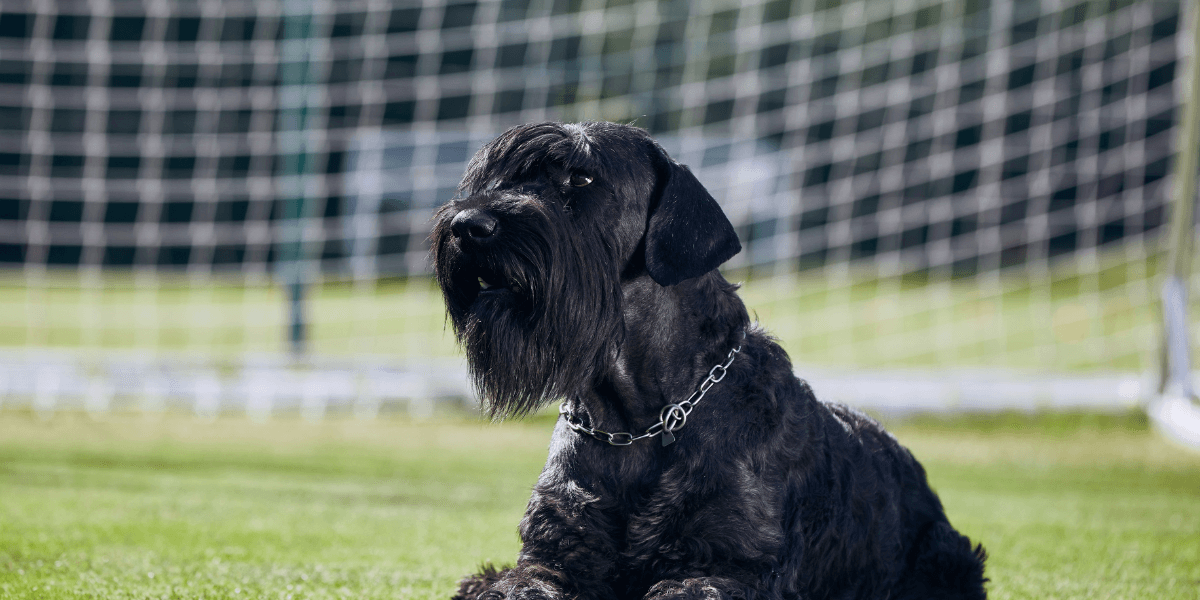
Giant Schnauzers are highly intelligent, which makes training both a joy and a challenge.
Detailed Explanation:
- Intelligence: This breed excels in learning new commands and tricks quickly
- Trainability: Their eagerness to please and work ethic makes them highly trainable
- Adaptability: Their intelligence allows them to adapt to various training methods
Advice & Best Practices:
- Consistent Training: Use positive reinforcement techniques and be consistent with commands
- Mental Stimulation: Provide ample mental stimulation through interactive toys
- Short Sessions: Keep training sessions short and engaging to maintain their focus
3. Energetic and Playful
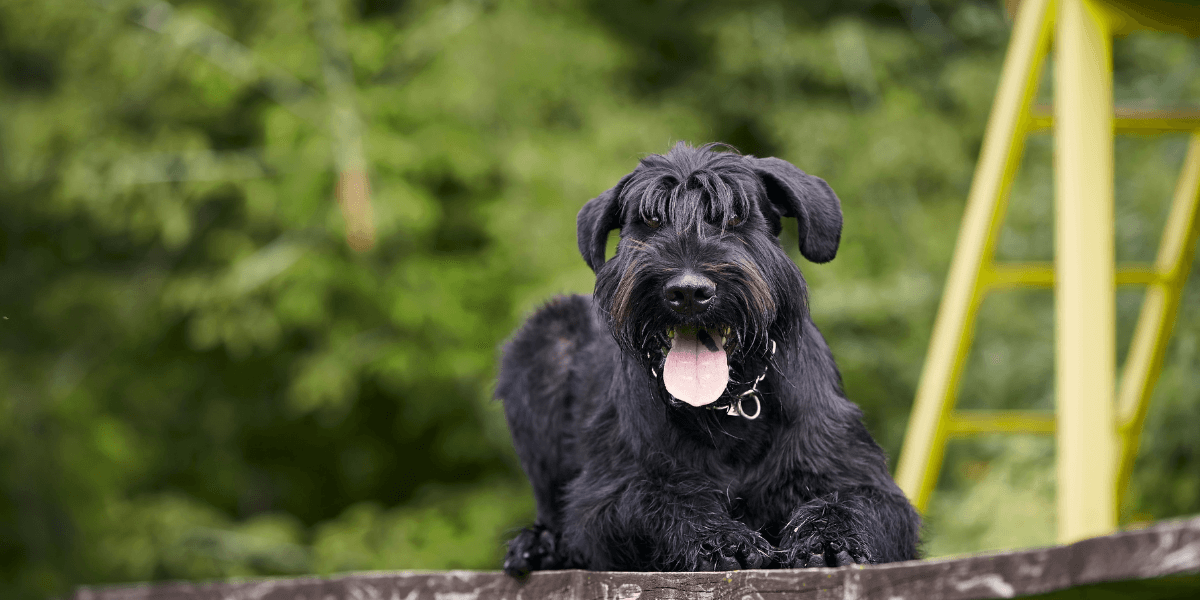
Giant Schnauzers have high energy levels and require regular physical activity.
Detailed Explanation:
- Energy Levels: They need plenty of exercise to burn off their boundless energy
- Playfulness: They enjoy playtime and can be quite playful, especially with family members
Advice & Best Practices:
- Daily Exercise: Ensure your dog gets at least an hour of vigorous exercise each day
- Playtime: Incorporate interactive play sessions to strengthen your bond
- Variety in Activities: Mix up exercise routines with walks, fetch, and agility training
- Social Playdates: Arrange playdates with other dogs to enhance their social skills
4. Independent Yet Affectionate
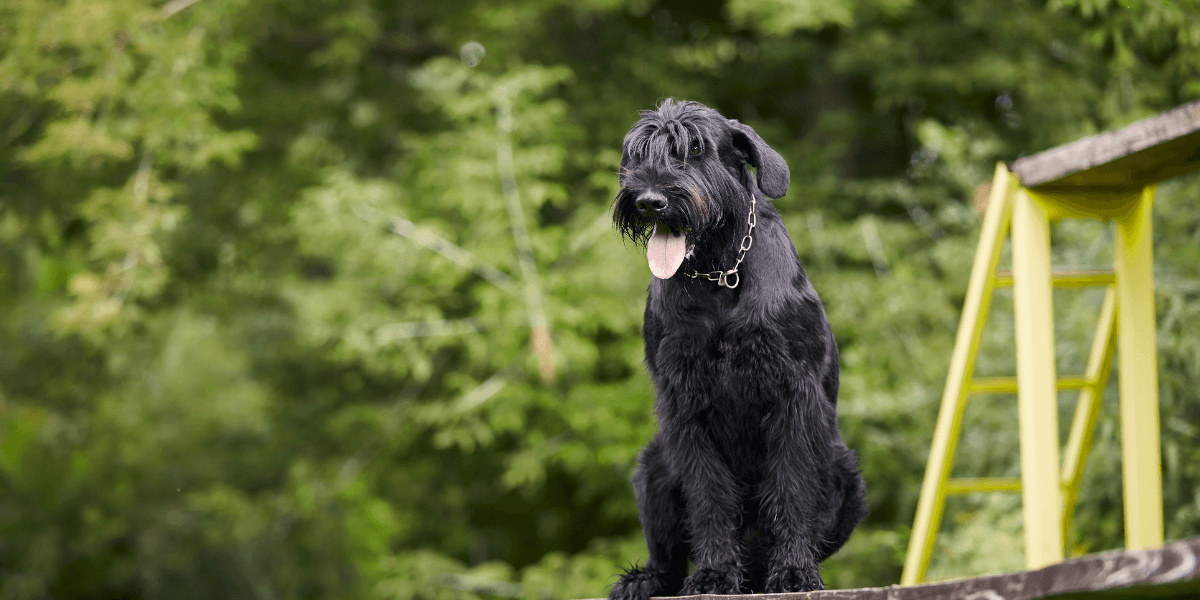
While Giant Schnauzers are independent and capable of entertaining themselves.
Detailed Explanation:
- Independence: They are confident and can handle being alone for short periods
- Affection: Despite their independence, they are affectionate and enjoy cuddles
Advice & Best Practices:
- Balanced Interaction: Provide a balance of independent play and affectionate time
- Quality Time: Make time for daily bonding activities like grooming or simply relaxing together
Irish Setters love their independence—explore the best orthopedic beds for dogs to match their comfort needs.
5. Stubbornness and Strong Will
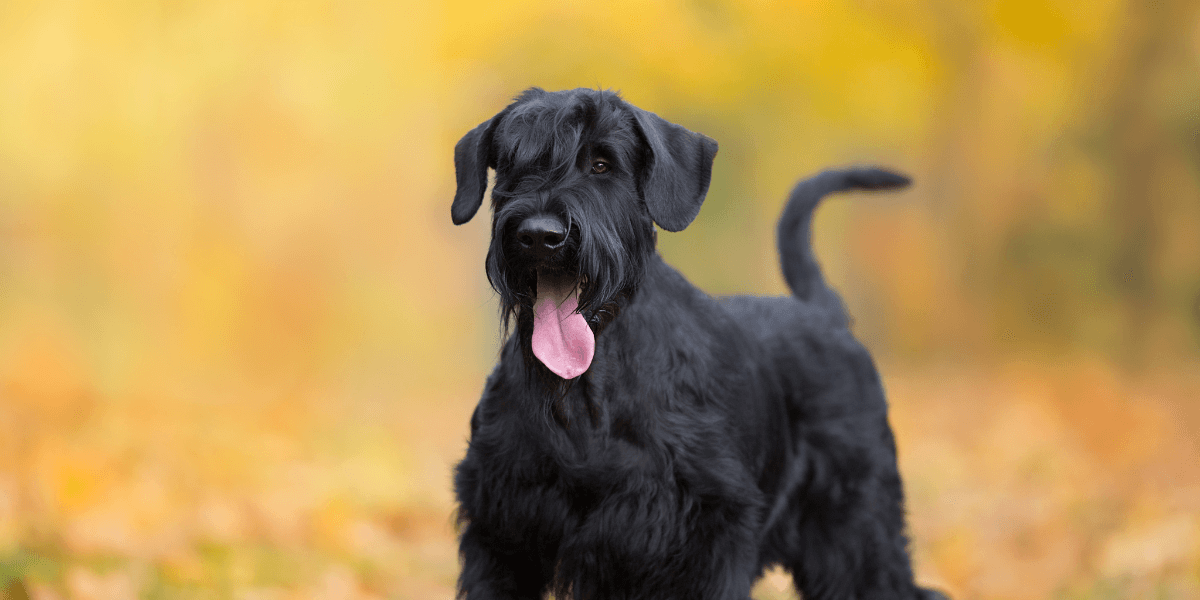
Giant Schnauzers can be stubborn and require a firm yet gentle hand in training.
Detailed Explanation:
- Stubbornness: Their strong will can sometimes come across as stubbornness
- Determination: This breed is determined and can be persistent in getting what they want
- Training Challenges: Training may require patience and consistency due
- Motivational Techniques: Use positive reinforcement to encourage desired behaviors
Advice & Best Practices:
- Firm Leadership: Establish yourself as a firm yet fair leader
- Patience: Use patience and persistence in training, and never resort to harsh methods
- Consistent Commands: Consistent commands to reinforce understanding and compliance
- Engaging Activities: Include fun activities and mental stimulation
6. Sociable with Proper Socialization
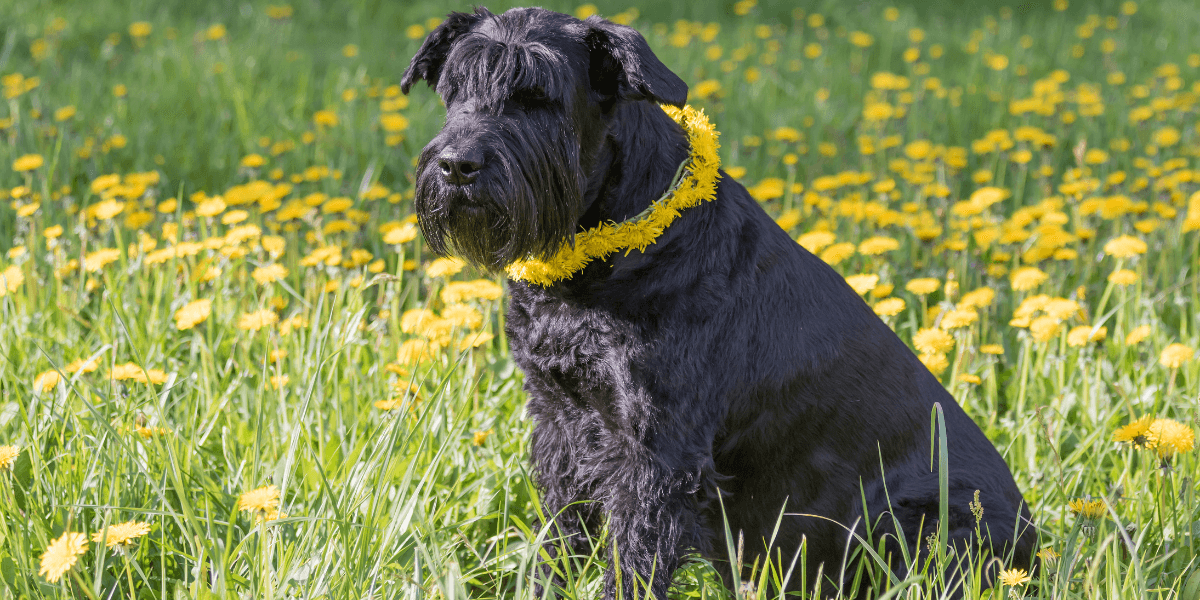
Giant Schnauzers can be sociable dogs if they are well-socialized from an early age.
Detailed Explanation:
- Sociability: Giant Schnauzers can get along well with other dogs, pets, and people
- Early Socialization: Early exposure to various social situations helps them develop into friendly
- Training Opportunities: Enroll in puppy classes to enhance their social skills
- Positive Experiences: Ensure all interactions are positive to build confidence
Advice & Best Practices:
- Socialization Activities: Take your Giant Schnauzer to dog parks and other social gatherings
- Controlled Introductions: Introduce them to new experiences gradually
- Varied Environments: Expose them to different environments, like busy streets
- Positive Reinforcement: Use treats and praise to encourage good behavior
Irish Setters thrive with socialization—discover effective training tips for raising well-behaved companions.
7. Grooming and Maintenance
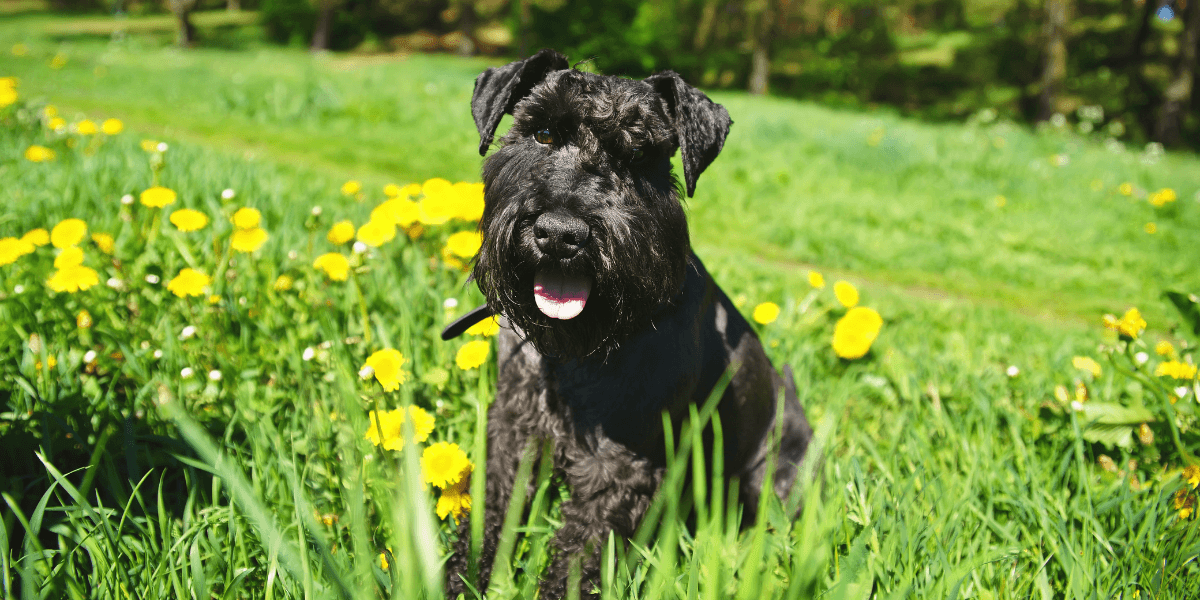
Giant Schnauzers have a distinctive coat that requires regular grooming.
Detailed Explanation:
- Coat Type: Dense coat is low-shedding but requires regular maintenance
- Grooming Needs: Regular brushing, trimming, and occasional professional grooming
- Bathing Frequency: Bathe every 2-3 months unless the dog gets particularly dirty
- Ear and Dental Care: Clean ears regularly and maintain dental hygiene for overall health
Advice & Best Practices:
- Regular Brushing: Brush their coat at least once a week to prevent tangles
- Professional Grooming: Schedule professional grooming every 6-8 weeks
- Nail Trimming: Trim nails monthly to prevent discomfort and ensure proper mobility
Grooming your Irish Setter is key—get coat care tips to keep them looking their best and feeling great.
FAQs
1. Are Giant Schnauzers good family pets?
-
Yes, they are loyal and protective
2. Is the Giant Schnauzer temperament friendly?
-
They are friendly but can be reserved with strangers
3. How active are Giant Schnauzers?
-
Very active; they need regular exercise
4. Are Giant Schnauzers easy to train?
-
Yes, they're intelligent and respond well to training
5. Do Giant Schnauzers bark a lot?
-
They can be vocal, especially if bored
6. How do Giant Schnauzers behave with children?
-
They're generally good with children if well-socialized
7. Are Giant Schnauzers aggressive?
-
Not typically, but they need proper training and socialization
Conclusion
- Giant Schnauzer Temperament is a blend of intelligence, loyalty, and protectiveness
- Their high energy levels make them suitable for active families or individuals
- Consistent training is key to managing their strong-willed nature
- Socialization helps in balancing their protective instincts with friendliness
- Understanding Giant Schnauzer temperament ensures a harmonious relationship
Share it with other potential Giant Schnauzer owners and leave a comment below!
References
For more information on Giant Schnauzer Temperament, check:
- 7 Things You Need to Know about Giant Schnauzers
- Giant Schnauzer: Dog Breed Characteristics & Care
- Giant Schnauzer Temperament and Insurance Plan
- Orthopedic Dog Beds for Large Dogs: A Comprehensive Guide
- Top Orthopedic Beds for Large Dogs with Hip Dysplasia
- Orthopedic Dog Beds: Help for Senior Dog Arthritis?
Thank you!




